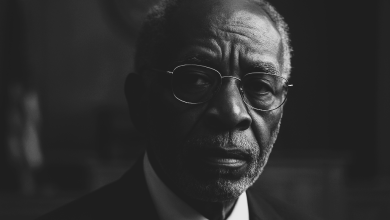
Inclusion and diversity within Africa’s legal industry have seen notable advancements, yet significant challenges persist. While the representation of women in legal professions has increased, their ascent to leadership roles remains hindered by systemic barriers.
Progress in Gender Representation
Several African nations have made commendable strides in enhancing gender diversity within the legal sector:
-
Rwanda: Women hold approximately 50% of judicial positions, reflecting the country’s commitment to gender parity in leadership.
-
South Africa: Women constitute about 40% of legal practitioners, with historic appointments such as Chief Justice Mandisa Maya, the first female Deputy Chief Justice of the Constitutional Court.
-
Kenya: Women make up over 30% of law society members, highlighted by Martha Koome’s appointment as the first female Chief Justice in 2021.
-
Ghana: Approximately 35% of lawyers are women, with female judges occupying key positions in the judiciary. The election of Efua Ghartey as President of the Ghana Bar Association marks a significant milestone.
-
Nigeria: Women account for about 30% of lawyers, with the Nigerian Bar Association having had female presidents, setting a precedent for leadership roles.
Challenges to Leadership Advancement
Despite numerical gains, women face obstacles in attaining leadership positions. In South Africa, for instance, the legal profession remains predominantly white and male, despite legislative efforts to promote diversity. In 2017, 61% of admitted attorneys were male, and 58% were white, highlighting the slow pace of transformation. Black women, in particular, are underrepresented, comprising only 17% of attorneys, despite making up a quarter of the population.
Racial and Socio-Economic Disparities
Racial disparities are pronounced in countries like South Africa, where white attorneys, comprising less than 9% of the population, hold 53% of practicing attorney positions in the commercial sector. Black African attorneys are underrepresented, especially in senior roles within specialized fields like finance and mergers and acquisitions law.
Firm-Level Diversity Initiatives
Some African law firms are leading in gender diversity. Fairbridges Wertheim & Becker in South Africa reports a 50% female partnership, while Angola’s FBL Advogados boasts 63% female partners. However, the average percentage of female partners across top African firms remains around 35%, indicating room for improvement.
Path Forward
Addressing these challenges requires:
-
Structural Reforms: Implementing policies that promote equitable opportunities and dismantle systemic biases.
-
Cultural Shifts: Challenging stereotypes and fostering inclusive workplace environments.
-
Mentorship Programs: Supporting women and underrepresented groups through mentorship and professional development initiatives.
-
Accountability Measures: Establishing mechanisms to monitor progress and ensure compliance with diversity and inclusion policies.
By embracing these strategies, Africa’s legal industry can move toward a more inclusive and diverse future, reflective of the continent’s rich tapestry of talent and perspectives




